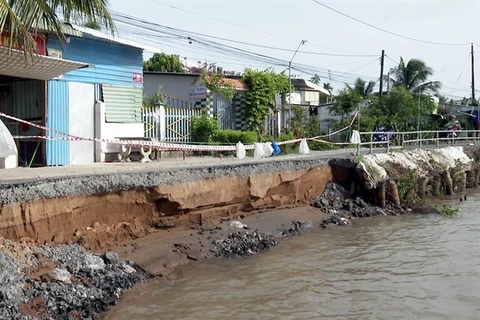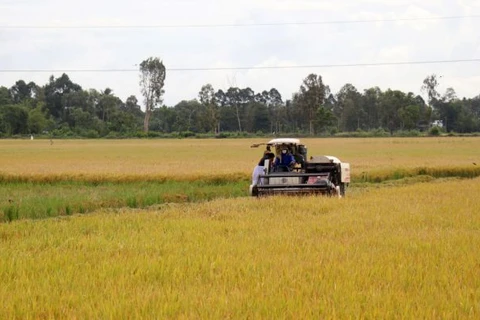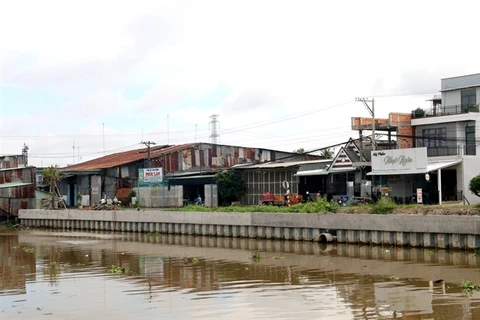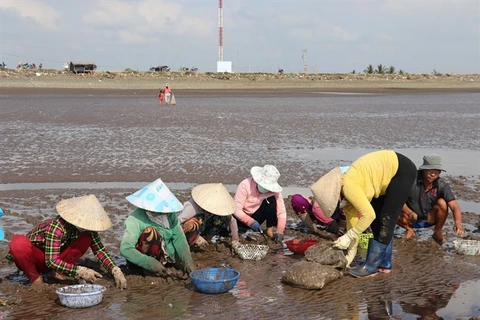 Caption: The Cai Lon - Cai Be irrigation system in Kien Giang province is the largest of its kind in the country. (Photo: VNA)
Caption: The Cai Lon - Cai Be irrigation system in Kien Giang province is the largest of its kind in the country. (Photo: VNA) A salinity rate of four grammes per litre was seen 45-70km upstream in major rivers this week, according to the Department of Water Resources.
In the Vam Co Dong and Vam Co Tay rivers, saltwater has reached 65-70km deep, 5-7km more than at this time last year, it said.
Most plants can only tolerate a rate of 1 gramme per litre.
But water is adequate for the ongoing winter-spring rice crop, the department added.
The delta, the country’s largest rice, fruit and seafood producer, has 1.5 million hectares under the crop.
The saltwater intrusion from the sea occurs annually during the dry season between December and April.
To cope with it, the delta’s 12 provinces and Can Tho City take various measures such as restructuring agriculture, building irrigation works and storing freshwater.
Kien Giang province, the country’s largest rice producer, is dredging irrigation canals to increase their capacity.
Nguyen Huynh Trung, head of the province’s Irrigation Sub-department, said an estimated 117 temporary soil dams would be built to store water.
It has 36 such dams and with saltwater prevention sluices to protect the ongoing rice crop, he said.
It has instructed farmers to test the salinity rate before irrigating their fields, he said.
In Tien Giang province, authorities are building six saltwater prevention sluices along the Tien River, a tributary of the Mekong, at a cost of 864 billion VND (37 million USD). The construction is expected to be completed in June.
They have also dredged 544 irrigation works and canals with a total length of 888km to ensure there is enough water for the current crop.
The country’s largest fruit producing province encourages farmers to store water in ponds dug in fruit orchards and fields and use it efficiently./.
VNA























